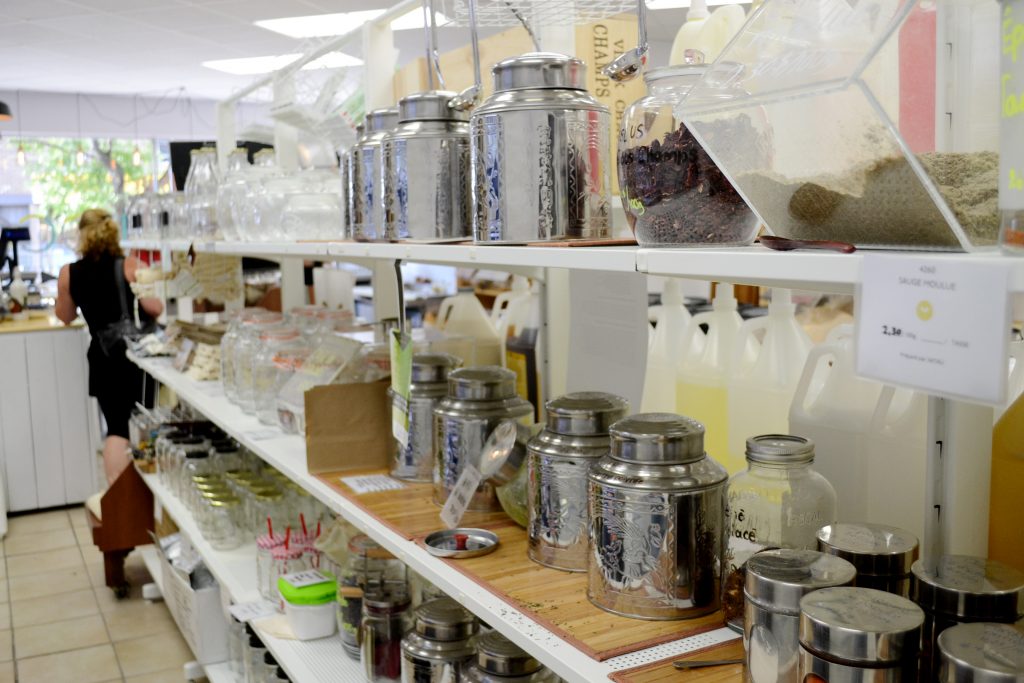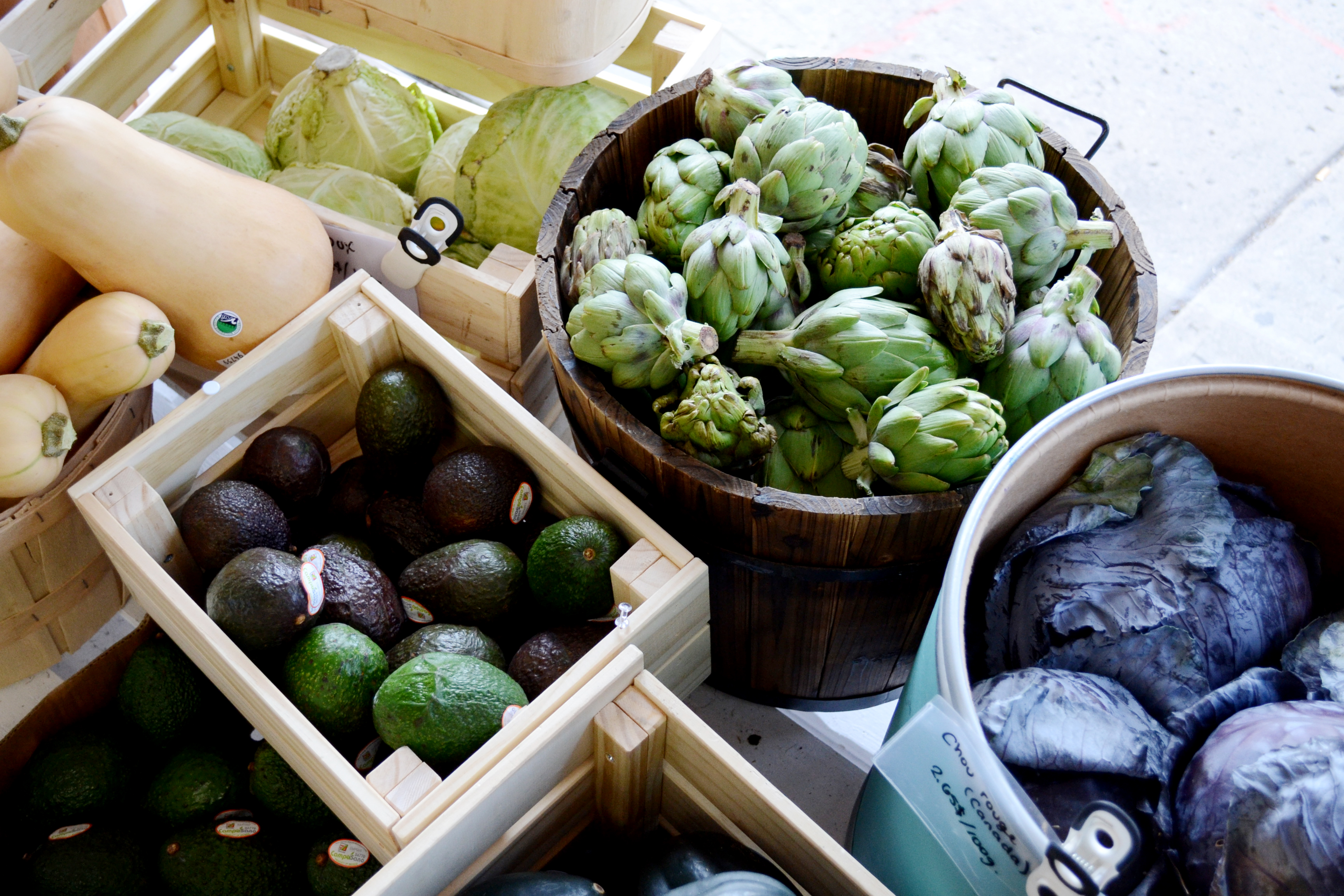A new grocery store in Villeray offers an environmentally-conscious shopping experience
Somewhere on Jarry street, in a small shop littered with bulk food containers and glass pots, customers are going about their grocery shopping in a peculiar way.
LOCO is not your typical grocery store—here, one of the main priorities is being environmentally-conscious.
LOCO is an innovative, zero-waste grocery store that opened on Aug. 9. The store, located in the Villeray neighbourhood, offers its customers products that are as environmentally friendly as possible. The store’s products are sold in bulk, free of any sort of packaging, and most of them are organic and supplied by local producers.
The concept is simple: customers come in with their own glass containers and tote bags, or buy ones at the store. While the option for buying cloth tote bags is there, most customers bring their own. After weighing their empty pots, they can fill them with any desired good in the store. At the register, the products are weighed, and the price is calculated per mass unit. No plastic bags, no unnecessary packaging.
Behind the brand are four women: Andréanne Laurin, Martine Gariépy, Marie-Soleil L’Allier and Sophie Maccario. The women all studied environmental sciences. “We learned about monocultures, pesticides and their impact on agriculture. [We realized that] it’s important to be careful with that.”
According to the David Suzuki Foundation, the use of synthetic nitrogen fertilizers, for instance, emits nitrous oxide, a greenhouse gas that retains heat in the atmosphere about 300 times more than carbon dioxide. Chemical farming also uses up much more energy than organic farming, which relies on natural fertilizers such as compost.
The food’s production isn’t the only part of the process that affects the environment. Food transport also comes into play when considering the environmental impacts of the food industry. Transport requires gas, which results in more greenhouse gases emissions. The further food travels, the greater amount of greenhouse gases is released in the atmosphere, and the more damageable it is to the environment, according to the David Suzuki Foundation. Therefore, local farming is also a practice to be encouraged.

Photo by Sarah Boumedda.
“We wanted a place to buy our food that would be eco-friendly,” Laurin explained. “The main thing that [people] buy is food, so we thought it was the best way to improve our lifestyle, as food is the one thing people will have to buy no matter what, on a regular basis.”
LOCO’s products range from a wide variety of cereals, beans, and other dry foods, to fresh fruits and vegetables of the season, to local dairy products, various meat and fish, and baked goods.
However, LOCO offers more than just food. The grocery store’s inventory also includes daily-life essentials, such as cleaning products, soaps, and even toothpaste. Most of these goods are handmade from natural ingredients.
“Our products are mostly organic, or come from various small producers from Quebec, who don’t use pesticides or GMOs [genetically modified organisms],” said Laurin. “LOCO is a place where you can find all of these products in one place, instead of having to pass by three stores to get your usual groceries.”
The zero-waste, eco-friendly concept of LOCO, with its no-packaging policy, is a brand new concept in Quebec but is a practice that is already popular in Europe. “There’s a similar store in France, called Day by Day,” said Laurin. Day by Day is a French chain of grocery stores offering bulk goods, just like LOCO. Its first branch opened in 2013.
However, according to Laurin, the zero-waste initiative presumably originates from Bea Johnson, a French-born American grand prize winner of the Green Awards in 2011. Author of the bestseller book, Zero Waste Home, she adopted the zero-waste lifestyle in 2008, and now holds talks and conferences on the topic and writes about her experiences on her blog. “[Johnson] is really involved in the zero-waste community,” said Laurin. “We know more about the zero-waste [movement] because of her.”
LOCO has been in the works for about a year and a half, said Laurin. “We only opened last month, so that’s why we’re really busy at the moment,” she added, gesturing behind her towards the hustle and bustle of employees and customers around the store.
“It’s been really nice,” said Laurin about the team’s experience since the store’s opening. “It’s really fun to see customers, talk with them and ask them what they want, too. We try to adjust our products, depending on what people want.”
Laurin assured that everyone is welcome at LOCO, and that the team would gladly talk anyone through the basics of the store. “Maybe one day we could have a small store around Concordia’s campus,” Laurin said with a smile.




